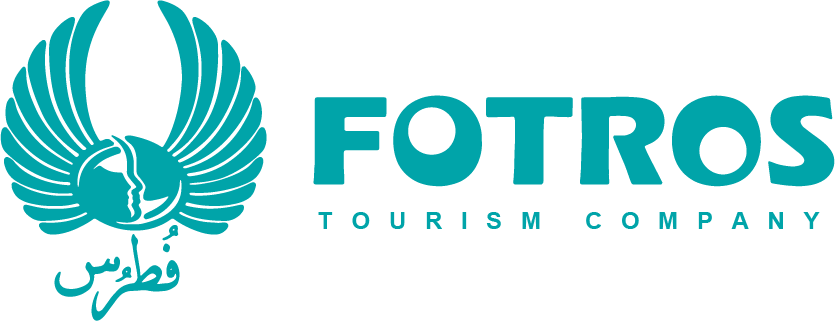
Medical Surgeries
Ureteral Surgery


Ureteral surgery refers to any surgical procedure that is performed on the ureters, which are the thin, muscular tubes that carry urine from the kidneys to the bladder. Ureteral surgery may be necessary to treat various medical conditions and issues affecting the ureters.
Some common reasons for ureteral surgery include:
Ureteral obstruction: When a ureter becomes blocked or narrowed, it can lead to the backup of urine in the kidney, causing pain and potential kidney damage. Ureteral surgery can be performed to remove obstructions, such as kidney stones or strictures, to restore normal urine flow.
Ureteral reflux: Vesicoureteral reflux (VUR) is a condition where urine flows backward from the bladder into the ureters, potentially leading to urinary tract infections or kidney damage. Surgical procedures, such as ureteral reimplantation, can correct VUR by redirecting urine flow.
Ureteral trauma: In cases of injury or damage to the ureters due to accidents or medical procedures, surgery may be required to repair the ureter and restore its proper function.
Ureteral tumors: Ureteral cancer is a rare but serious condition. Surgical removal of tumors in the ureters may be necessary, and this can involve procedures like partial or complete ureterectomy.
Ureteral diverticulum: Ureteral diverticula are pouch-like structures that can form in the ureter. They can sometimes cause pain or obstruct the flow of urine. Surgical removal or repair of the diverticulum may be needed.
Ureteral surgery can be performed using various techniques, including minimally invasive procedures such as laparoscopy or robotic-assisted surgery, which often result in shorter recovery times and reduced postoperative pain. The specific type of surgery performed depends on the underlying condition and the patient's individual circumstances.
It's essential to consult with a urologist or a medical specialist to determine the most appropriate course of action if you have a condition that may require ureteral surgery. They can provide a proper diagnosis and recommend the most suitable treatment plan.
Ureteral surgery is a medical procedure that involves the treatment of conditions or issues related to the ureters, which are the tubes that carry urine from the kidneys to the bladder. The type of ureteral surgery can vary based on the specific condition being treated, and the before and after care may differ accordingly. Below is a general outline of what you can expect before and after care for ureteral surgery:
Before Ureteral Surgery:
Preoperative Assessment:
- Your healthcare provider will conduct a thorough medical evaluation to assess your overall health and determine the necessity of the surgery.
- You may be asked to provide a medical history and undergo various diagnostic tests like blood work, urine tests, and imaging studies.
Medication Review:
- Inform your healthcare provider about any medications, supplements, or herbal remedies you are taking, as some may need to be adjusted or discontinued before the surgery.
Fasting:
- You will typically be instructed to fast for a specific period before the surgery, usually starting the night before the procedure.


Lifestyle Adjustments:
- Your doctor may advise you to make specific lifestyle changes, such as quitting smoking or avoiding alcohol in the days leading up to the surgery.
Anesthesia Discussion:
- Discuss the type of anesthesia (general or regional) you will receive during the surgery and any associated risks with your anesthesia team.


After Ureteral Surgery:
Hospital Stay: The length of your hospital stay will depend on the type of surgery and your overall health. Some ureteral surgeries are performed on an outpatient basis, while others may require a hospital stay.
Pain Management: You may experience pain and discomfort after the surgery. Your healthcare provider will prescribe pain medication to manage this.
Catheter: In some cases, a urinary catheter may be placed to assist with drainage and healing of the ureter. Your healthcare team will monitor this closely.
Diet: Your diet may be gradually advanced from liquids to solid foods as your recovery progresses.
Hydration: Adequate hydration is essential to maintain kidney function and promote healing. You may receive intravenous fluids, and you will be encouraged to drink fluids.
Activity: Initially, you'll be advised to rest and limit physical activity. Over time, your healthcare team will guide you on when it's safe to resume normal activities.
Wound Care: If the surgery involves an incision, you'll be given instructions on how to care for and keep the incision site clean and dry.
Follow-up Appointments: You will have scheduled follow-up appointments with your healthcare provider to monitor your recovery, remove any catheters or drains, and assess your progress.
Before undergoing ureteral surgery in Iran or any other country, it's crucial to consult with a trusted urologist or healthcare provider to determine the most appropriate course of action and to ensure that the chosen medical facility and healthcare professionals meet the necessary standards for safety and quality of care.
Why Iran:
Iran, like many other countries, has medical facilities and expertise to perform various surgical procedures, including ureteral surgery. The suitability of Iran for ureteral surgery, or any medical procedure, depends on several factors. Here are some reasons why Iran may be considered suitable for ureteral surgery:
Skilled Healthcare Professionals: Iran has well-trained urologists and healthcare professionals who are experienced in performing various urological surgeries, including ureteral surgery. Many Iranian doctors receive their training both domestically and internationally.
High-Quality Medical Education: Iran has a strong medical education system, producing a significant number of well-trained doctors and specialists each year.


Modern Medical Facilities: Iran has modern hospitals and medical facilities that are equipped with advanced medical technology and equipment for diagnosing and treating urological conditions. These facilities meet international standards and guidelines for medical care.
Cost-Effective Healthcare: Medical procedures in Iran, including surgical interventions, can be more cost-effective compared to many Western countries, making it an attractive option for medical tourists seeking quality care at a reasonable cost.
Medical Tourism Infrastructure: Iran has developed infrastructure to support medical tourism, with dedicated agencies and services to assist international patients in organizing their medical trips, including appointments, accommodations, and transportation.
Cultural and Historical Attractions: Many people who travel for medical procedures also appreciate the opportunity to experience the rich culture and historical attractions in Iran, which can make their medical journey more rewarding.
However, it's important to note that the suitability of Iran for ureteral surgery, or any medical procedure, depends on individual circumstances, including the specific medical condition, the patient's preferences, and the advice of their healthcare provider. Patients considering medical tourism should do thorough research, including evaluating the credentials of healthcare professionals and facilities, understanding the potential risks and benefits, and considering the logistics of travel and recovery.


Our services include:
![]() our online services include: quotes and consultation
our online services include: quotes and consultation
![]() Planning the highest word-level medical trips and quality hospitals and medical centers according to the patient's request and budget.
Planning the highest word-level medical trips and quality hospitals and medical centers according to the patient's request and budget.
![]() Appointing treatments by the most skilled and experienced doctors.
Appointing treatments by the most skilled and experienced doctors.
![]() Airport pick-up/drop off, check-ups, accompanying translator, book hotel (for patients and their families)
Airport pick-up/drop off, check-ups, accompanying translator, book hotel (for patients and their families)
![]() Pre-hospitalization / post-hospitalization care services
Pre-hospitalization / post-hospitalization care services
All-Inclusive Medical Travel Packages
based on your budget, our team will assist you in choosing the best hotels, doctors, and medical centers. Our packages include:
 Airport Pickup Services
Airport Pickup Services Airport Dropoff services
Airport Dropoff services Hotel
Hotel Ticket
Ticket visa
visa translator
translator Transfer
Transfer SIM Card
SIM Card Sightseeing
Sightseeing


 why Iran
why Iran
Patients may choose to have abdominoplasty (commonly known as a tummy tuck) in Iran for a variety of reasons
Cost, Quality of Care, Privacy and Discretion, Combined Tourism, no Waiting Times
![]()
Fotros is an Iranian health tourism company with a professional team consisting of a support team and word-level doctors in medical and cosmetic surgeries like Neurosurgery, Rhinoplasty, Breast cosmetic surgeries, Liposuction, tummy tuck, etc.










 why Iran
why Iran